Well, it's the last weekend before NAB 2004 and
I know that by next weekend once again my desktop will be cluttered
with new hardware and software packages just crying out to "evaluate
me!" Yet, the desktop still is littered with the with shrink
wrap of products that have been sitting far too long. So, in
a last effort before NAB to tell you about some of the greatest
but not necessarily latest applications, add-ons and hardware
that I have been using these last few months, here is the final
installment in "New on My Cluttered Desktop". At least
until after NAB
Now, I have also decided to be kind to
those on slower connections, so we will have fewer visuals and
more text.
In no particular order, here it comes.
Contour
Design ShuttlePRO v2
www.contourdesign.com
$129.95
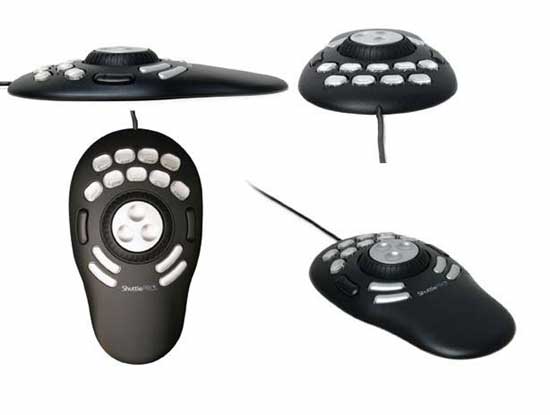
All I can say after using this product
for the last three months is "how did I ever edit without
it?" Earlier versions of the SuttlePRO were reported to
have experienced software incompatibilities resulting in some
strange behaviors in FCP. The combination of the ShuttlePRO v2
hardware and software revision version 2.02 results in a perfectly
functioning, glitch free and workflow enhancing device.
The Shuttle Pro sits flat on your desktop
(uncluttered, hopefully) and contains a jog wheel, shuttle wheel,
two rows of 9 buttons across the top, a button on either side
of the wheel, and two rows of two larger buttons on the bottom.
But, before you think that you are spending $129 on a device
only for Final Cut Pro, just look at all of the application presets
which are provided, and look carefully. You can even create your
own customized settings, all accessed via the Shuttle Pro application,
a shortcut to which resides in the upper right of your computer
screen.

But, as tempted as I might be to speak
about the other uses of the product (and I use it with my web
browser regularly), let's just talk about FCP. Note that once
within the FCP menu, the pull-down on the ShuttlePRO menu brings
up three possible configurations of the device.
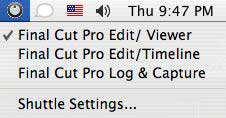
This allows you to switch between the
various modes.
Take a look at just one choice for button
mapping in log and capture. The button to the left of the wheel
is mapped to Log In. You will see the keystroke combination as
well. Note that you can remap the buttons to suit your tastes.
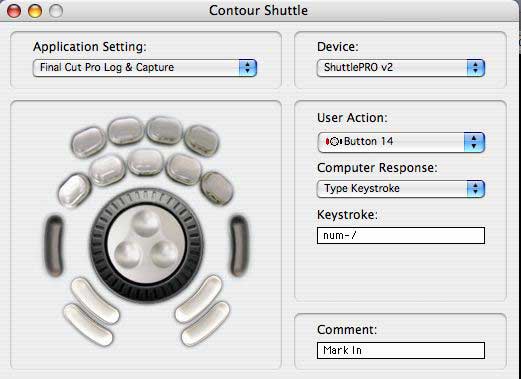
But how does it work, you ask? Once you
either memorize and button assignments or create your own custom
button assignments and remember them, everything just seems to
go smoother in your editing. On a personal note, I confess that
my least favorite part of the process is log and capture. I am
a "i" F2 kind of guy. I mark my in-point and
then like F2 to log the clip. The ability to accomplish this
with my hand on the ergonomic ShuttlePro and fingers ready to
press buttons just "feels right." Yes, it is a subjective
evaluation. But everyone's work habits are subjective.
While we may all work differently, each
of us demands products that work. We (or at least most of us)
would rather edit than troubleshoot the program. With the improvements
evident in the ShuttlePro v2, I have found no need for troubleshooting.
It simply works, quickly, accurately and responsively. If you
want to streamline your workflow, free yourself of many keystroke
combination dependencies and feel that your hand is really constantly
on the control, rush to your nearest dealer or on-line site for
a ShuttlePro v2. This is a product about which I offer no caveats,
no reservations - just praise.
DVRig
Pro
www.dvtec.tv
$599
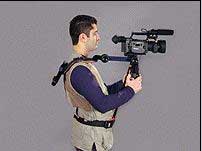
I own a Sony
PD150. The smaller DV/DVCAM units have a number of advantages,
but sometimes size actually works against you. Veterans accustomed
to toting Betacams on their shoulders know that the weight of
the camera actually creates sufficient inertia to stabilize the
shot. It is much harder to keep the smaller camera stable when
hand-held and even tiring to do so.
I have tried everything imaginable in
the lower end range of DV camera mounting and stabilization systems.
Stationary hand-held stabilizers can be difficult to balance,
but, once balanced I dare anyone to try to hold that device for
more than a few minutes. Your forearm actually functions as the
articulated arm of a steadicam-type device with vest and arm.
And its gets tiring. Then there are the hand-held gimbel devices.
Again, they are very heavy and require balancing. Not having
been the most coordinated cub scout in the pack, I simply could
never get the knack of a gimbel-based device.
So, when I had the opportunity to see
in action and then purchase a DV Rig Pro, I jumped at
the chance. No, you don't get to see actual photos of me. You
see, the DV Rig Pro consists of several components: a shoulder
mount with a counterweight on the back (which could also hold
a brick-type battery), adjustments for up/down, a Bogen (Manfrotto) quick release
plate which is also adjustable side to side both for balance
and viewfinder or LCD screen, and a belt with a spring-loaded
rod which attaches to the bottom of the camera plate and sits
in a little pouch in the belt. DV Tec also provides a belt extension
to those whose girth exceeds the standard size belt. It is for
those reasons of girth that I prefer to make television, restrict
most of my on-air work to radio, and not serve as a model for
the DV Rig Pro.
Like any device that also includes stabilization,
the DV Rig Pro does require some tweaking of the back counterweight
and side to side motion of the camera. Having achieved that,
it is possible to use those two front handles just with finger
tips. I usually attach my Varizoom to the right handle and compensate
for the weight with balance.
Combining the belt, spring-loaded rod
and shoulder mount keeps the camera stable and distributes the
weight evenly. The rig itself with counterweight is somewhat
heavy, but this weight adds to the stabilization. I have been
able to shoot with this unit for long stretches. In fact, my
feet usually give out before my back and arms.
There is also a shoulder strap which
can be used as a low-mount, and the unit itself rests nicely
on a table or on the ground for a stationary or ground-level
shot. Other accessories include a radio mike holder, shorter
rod, carrying case and on-camera light.
For those attending NAB 2004, designer
Danny Natovich will be showing the rig personally in the Cartoni
booth.
This is another Ned-recommended product.
Again, subjectively, it works for me. The downsides are cost
and an occasional feeling of being restricted in the spontaneity
of your shots. Changing shots might require loosening and tightening
the knobs or the spring-loaded rod. It might be harder to use
the device following fast-moving and variable action than it
would be to shoot hand-held. There is a learning curve to effectively
"flying it." But for wedding, event, ENG and controlled
production uses, this product is a winner.
Let's leave hardware and accessories
now and head to the add-ons department. Here I want to highlight
add-ons for Soundtrack
and LiveType.
Let's start with Soundtrack.
Soundtrack
Additional Loops
In one my many incarnations within this
life, I was a pioneer in the early days of Desktop Publishing
(I hated the word, but I also hated the $5000 I spent for my
first laser printer in 1982). You can never have enough clip
art, I used to say. Well, now I say you can never have enough
loops.
True, within Soundtrack we can use any
Acid loop. But there is a distinct advantage in buying loops
which developers have customized for Soundtrack. That is a simple
timesaving advantage. Since the loops are already categorized
for ST, there is no need to open each one in the ST Loop Utility
and create search keywords. Of course, you always have that option
should you wish additional customization, but who has the time.
We can also save some bandwidth here
because you can go to the web sites yourselves to see the DVD
covers and the only other visual representation of audio files
I could imagine is to post screen shots of wave forms.
I have been working with some Apple Loops
from www.samples4.com.
The developer is a fine British lad who prices all of his products
in the Queen's currency. But at prices that range between £30-£60,
these collections are really bargains. I personally have evaluated
and included in my collection the 16db Drum and Bass Interface
as well as the 2-Step Ahead package. The drum package
is well-constructed and consists of breaks, bass licks, synths,
synth pads and just generally a combination of both wild and
"normal" sounds. I love the 2-Step ahead for modern-style
loop creation. There are 13 groove kits which are almost self-contained
tracks as well as several hundred beats, one shots, sound fx,
synths-you name it, this package has it. The site also sells
Acid-compatible loops as well as loops specifically tagged for
Garage Band. Don't overlook it in your quest for additional loops.
When Apple created Soundtrack, it turned
to Swedish developer PowerFX for many of the loops bundled
with the program. PowerFX has since released 15 collections of
loops ranging in price from $10 to $199. Some are more specialized
such as My Jazz House which I have been using and others
are basically essential collections like the top of the line
$199 DV Composers Toolkit. This collection ranges from
cinematic to urban to international flavors. You could score
virtually any project with this collection alone. The PowerFX
loops are amazing in their construction and their tonal qualities.
But it's what you would expect from the folks upon whom Apple
relied as a basis for Soundtrack. Check out these and all 15
samplers at www.powerfx.com
Finally, I want to highlight some
add-ons for LiveType.
Back when Prismo Graphics introduced
India Pro, a whole collection of LiveFonts began to appear on
the market. Once Apple acquired India Pro and the application
resurfaced within FCP 4 as LiveType, I knew it was only a matter
of time until additional LiveFonts, backgrounds, objects and
textures would be offered by independent developers. Now, for
these, we need some visuals.
Handwritten
Volume 1
www.optimistik.com
$99 (NAB Special of $49-see web site for
expiration)
I need to highlight the most recent addition
to LiveFonts first because this collection was crafted by one
of the original developers of India Pro. Included in the package
are 10 handwritten fonts. Here are example of 5 of the Handwritten
series.
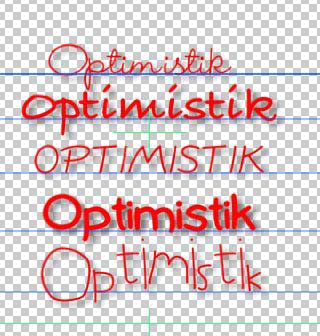
This is a nice and inexpensive package,
and even less expensive if you act before the NAB 2004 offer
ends. I think they work most effectively in creating a write-on
effect, which you accomplish by selecting the Timing tab, setting
Sequence to 100% and speed at a large number (or by dragging
to the desired time duration) and then if desired setting a Hold
Last to the number of frames you wish to hold the effect). Like
any handwritten font, the lines are delicate so you would need
to choose colors and backgrounds with care.
LiveType
Central
www.livetypecentral.com
Varying prices for fonts, objects, backgrounds,
templates
The LiveType Central products are developed
by Arizona-based 12 Inch
Design, which also produces an excellent line of motion backgrounds.
Here you can find just about anything
you want and in any price range. The LiveFonts are available
in a Gold and Platinum line, with Gold suitable for DV and SD
and Platinum fonts possessing resolution to go all the way to
HD or Film. The Gold fonts should be used at smaller sizes on
screen. As an example in pricing differential, a collection of
Gold fonts sells for $199 with its corresponding Platinum LiveFont
collection priced at $399. But, don't think for a moment that
the Gold Fonts will appear degraded or pixilated or are in any
way inferior work. They are not. As an aside, the process of
creating a LiveFont is both tedious and exacting and developers
are entitled to compensation for their time and talent.
Here we see some examples of Gold fonts
with one Platinum font. Pumpkin is my favorite. I guess it only
has limited use, but it is still clever.
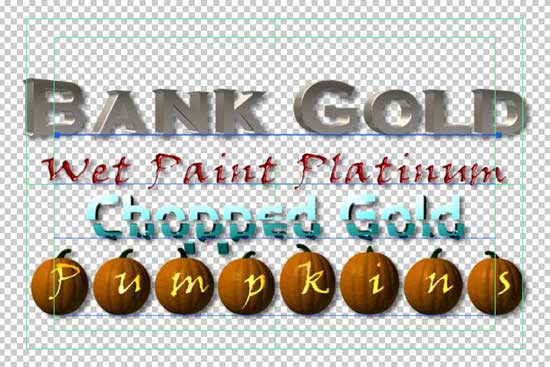
Here is a really cool texture. You would
certainly expect that from a company which began in the texture
business.
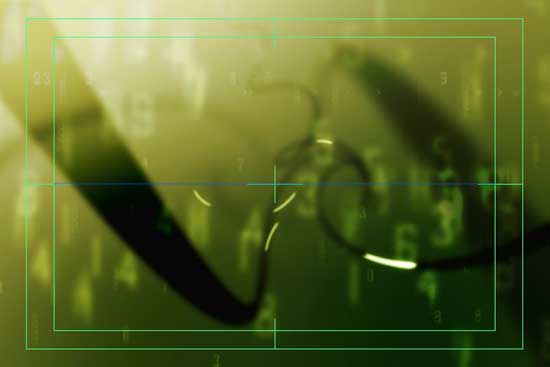
Now, note some of the Effects which I
have in my particular collection. I have highlighted the Hard
Bounce effect as one my favorites.
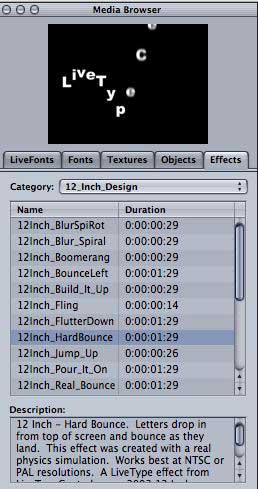
Finally, I'll just highlight one of the
many Templates available.
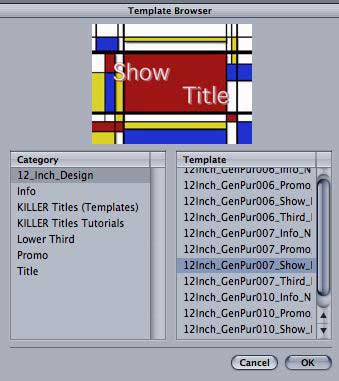
This particular template includes motion,
moving background, text place holder and can be used very effectively
in a contemporary-style presentation. Let me note something else
about the templates. For our PAL users, LiveType seems to have
neglected PAL templates. LiveType Central offers their templates
in both NTSC and PAL standards.
By virtue of sheer volume of LiveFonts,
Textures, Objects, Effects and Templates available, LiveType
central offers the most extensive collection of LiveType add-ons
currently on the market. If you can't find something you like
in these hundreds of items, well, you're just too picky.
Screen
Caffeine
www.screencaffeine.com
$65 per LiveFont
Screen Caffeine currently offers 6 LiveFonts,
at $65 for five of the fonts and $95 for the sixth font, the
Warhol family of fonts. Pictured below are two of the fonts,
Chocolat and Undulator
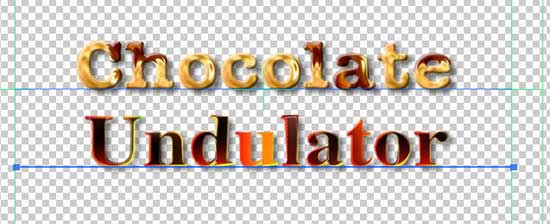
Now, having seen a smattering of other
collections, you may wonder why you should pay $65 for just a
single font. There is one simple reason-these are the best crafted
of all the LiveFonts I have tested. In the two fonts which I
have acquired, the continual variation of color and the ability
to enlarge the fonts to virtually any size without artifacting
shows that they are crafted with care, not to mention with creativity.
The web site describes them as works of art and indeed they are.
I would not hesitate to use these fonts in HD or film and I would
certainly use them in projects where artistic titling is of the
essence. Do not overlook these fonts, few in number but high
in quality. You will not be disappointed and with no denegration
of the other products intended, these fonts win the Ned-award
of this review. I am impressed.
A Luna
Blue LiveType: 01
www.alunablue.com
$99
I just had to show you all 24 animated
textures and objects in this collection.
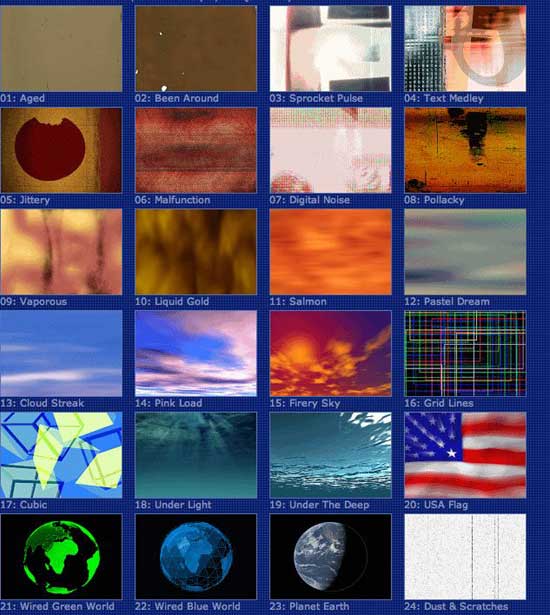
These graphics were created in cooperation
with the master teacher of FCP, Steve
Martin and constitute his first entry into add-on development
for LiveType. What is so impressive here is that the 3D elements
were modeled in Maya and brought into the textures and objects.
Currently the package is only available in NTSC but a PAL version
is promised shortly.
My verdict-well crafted, creative, useful.
There is nothing dull about any of these items and I do believe
that $99 for 24 textures and objects does constitute excellent
value for the money.
There you have it. My desktop should
now be clean but somehow it remains cluttered with assorted papers,
notes, unpaid bills, and fragments of my next book.
Stay with me after NAB 2004 for reviews
of new products which will no doubt come my way as well as for
a longer article I am writing, tentatively called "A FCP
and AE User Migrates to Combustion 3."
For those attending NAB 2004, watch for
me on the show floor or in my usual role of selling tickets for
the FCP User Group bash. At least until the latest diet is successful,
I won't be hard to spot.
copyright©Ned Soltz2004
Ned Soltz
is a passionate advocate of technology which enhances the creative
process. He only wishes that he were more creative. Ned is among
the founders of lafcpug, as well as a published author of numerous
articles and reviews on all things NLE. The author of several
books and technical editor of still others, Ned is often on the
road with his Powerbook G4 and mobile FCP studio. Catch him at
home or on the road at nsoltz@aol.com
Ned also moderates several forums on 2-pop.com